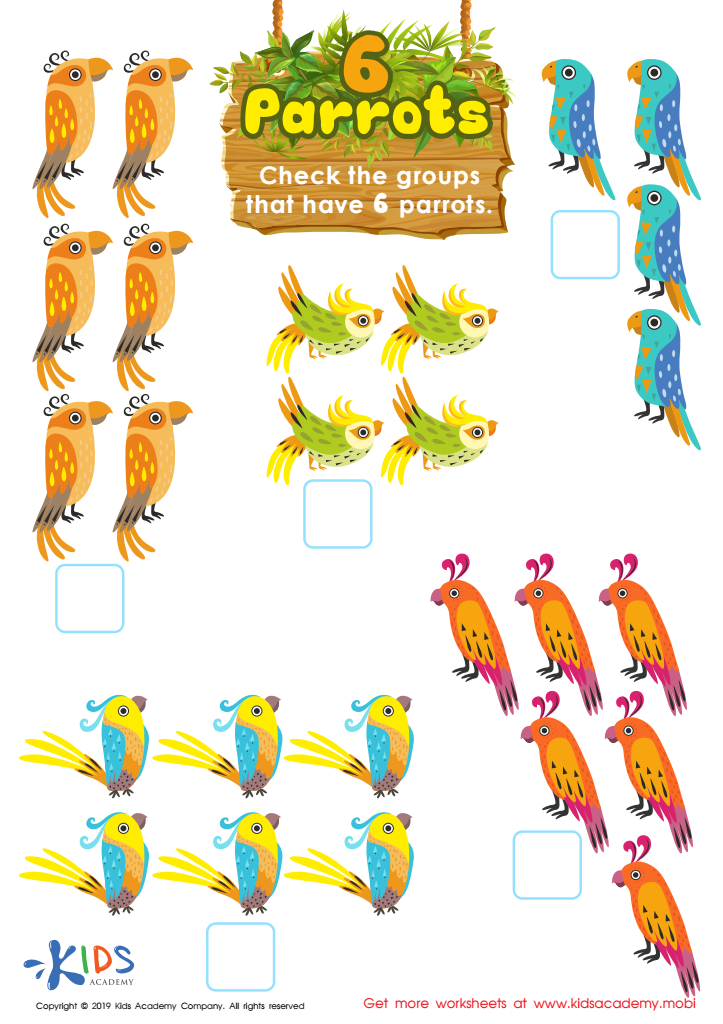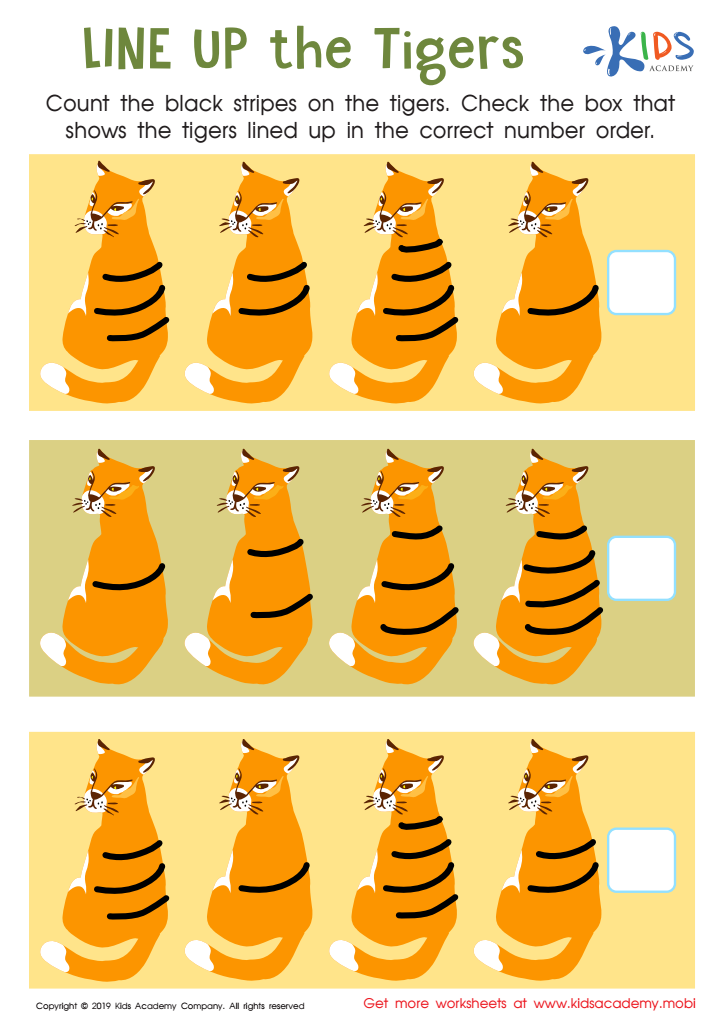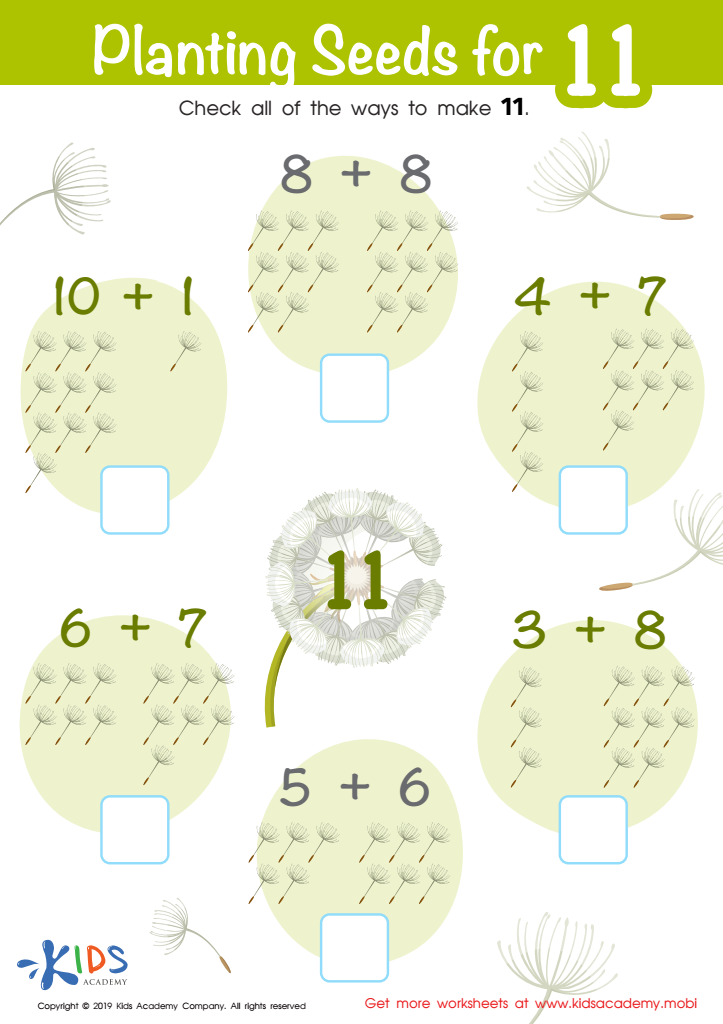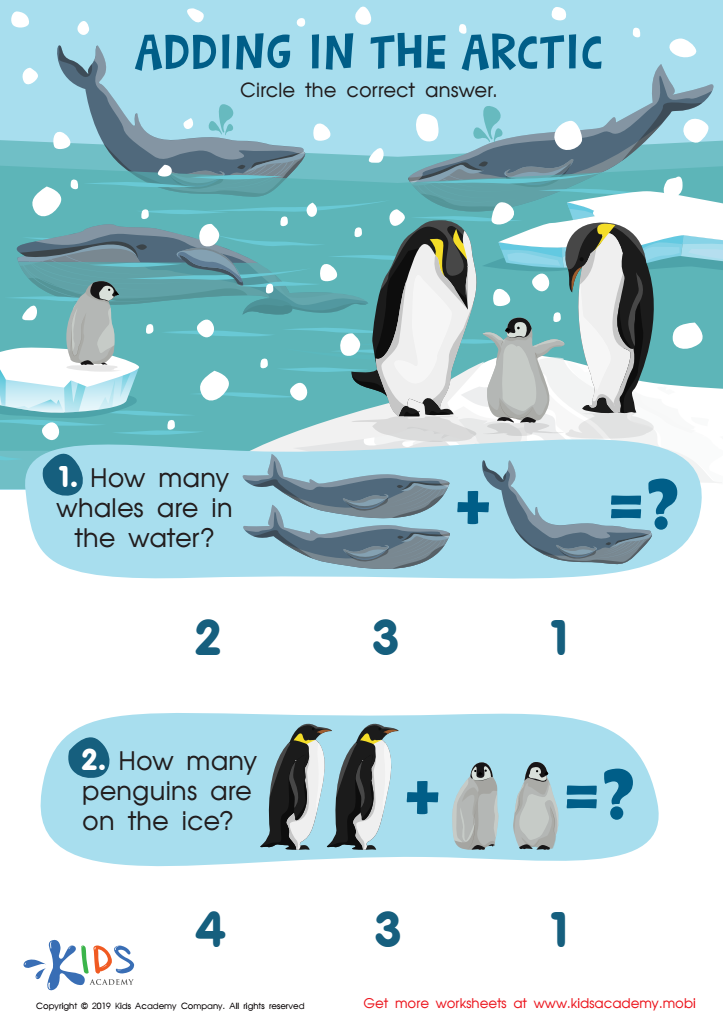Fine Motor Skills Easy Addition & Subtraction Worksheets for 4-Year-Olds
5 filtered results
-
From - To
Introduce your 4-year-old to the joy of math with our "Fine Motor Skills Easy Addition & Subtraction Worksheets." Designed to boost early math understanding while enhancing fine motor skills, these engaging worksheets offer a playful approach to addition and subtraction. Children will enjoy coloring, tracing, and connecting dots as they solve simple math problems, promoting both cognitive and physical development. Each sheet encourages critical thinking and hand-eye coordination, making learning both fun and effective. Perfect for home or classroom use, these worksheets provide an excellent foundation for future math success, all while keeping young learners entertained and motivated!


Counting Seedlings Worksheet


6 Parrots Worksheet


Line up the Tigers Worksheet


Planting Seeds for 11 Worksheet


Adding in the Arctic Worksheet
Parents and teachers should prioritize fine motor skills development in young children, particularly when learning concepts like easy addition and subtraction. At the age of four, children are at a critical stage where their cognitive, emotional, and physical abilities are rapidly evolving. Fine motor skills— the ability to control small movements with precision— play a fundamental role in a child’s academic readiness and overall development.
Firstly, strong fine motor skills are crucial for effective pencil grip and movement, necessary for writing numbers and forming math symbols. Children adept in fine motor skills are more likely to engage confidently with math activities, fostering a positive attitude toward learning.
Moreover, incorporating fine motor skill activities, such as using manipulatives or engaging in crafting tasks, can make learning math enjoyable. Children learn best through hands-on experiences; thus, integrating fine motor development with basic addition and subtraction can promote critical thinking and problem-solving skills.
Finally, developing fine motor skills also enhances a child’s self-esteem and ability to concentrate. By supporting these skills, parents and teachers can help lay a solid foundation for future learning, ensuring children are motivated and equipped for success in their educational journey.
 Assign to My Students
Assign to My Students
















